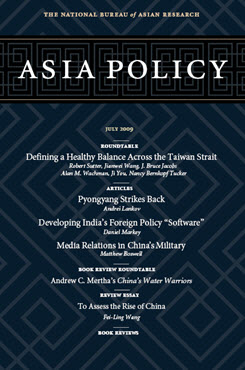Developing India's Foreign Policy "Software"
This article outlines significant shortcomings in India’s foreign policy institutions that undermine the country’s capacity for ambitious and effective international action, and proposes steps that both New Delhi and Washington should take, assuming they aim to promote India’s rise as a great power.
EXECUTIVE SUMMARY
This article outlines significant shortcomings in India’s foreign policy institutions that undermine the country’s capacity for ambitious and effective international action, and proposes steps that both New Delhi and Washington should take, assuming they aim to promote India’s rise as a great power.
MAIN ARGUMENT
India’s own foreign policy establishment hinders the country from achieving great-power status for four main reasons: (1) The Indian Foreign Service is small, hobbled by its selection process and inadequate midcareer training, and tends not to make use of outside expertise; (2) India’s think-tanks lack sufficient access to the information or resources required to conduct high-quality, policy-relevant scholarship; (3) India’s public universities are poorly funded, highly regulated, and fail to provide world-class education in the social sciences and other fields related to foreign policy; and (4) India’s media and private firms—leaders in debating the country’s foreign policy agenda—are not built to undertake sustained foreign policy research or training.
POLICY IMPLICATIONS
For India to achieve great-power status, a number of improvements to its foreign policy software will be required:
- expand, reform, pay, and train the Indian Foreign Service to attract and retain high-caliber officers
- encourage the growth of world-class social science research and teaching schools in India through partnerships with private Indian and U.S. investors, universities, and foundations
- Invest in Indian think-tanks and U.S.-India exchange programs that build capacity for foreign policy research
- bring non-career officers into the Indian Ministry of External Affairs and other parts of the foreign policy establishment as term-limited fellows to improve outside understanding of the policy process
- support the efforts of Indian researchers to maximize public access to material related to the history of India’s foreign policy by way of the 2005 Right to Information Act
About Asia Policy
Asia Policy is a peer-reviewed scholarly journal presenting policy-relevant academic research on the Asia-Pacific that draws clear and concise conclusions useful to today’s policymakers. Asia Policy is published quarterly in January, April, July, and October and accepts submissions on a rolling basis. Learn more


